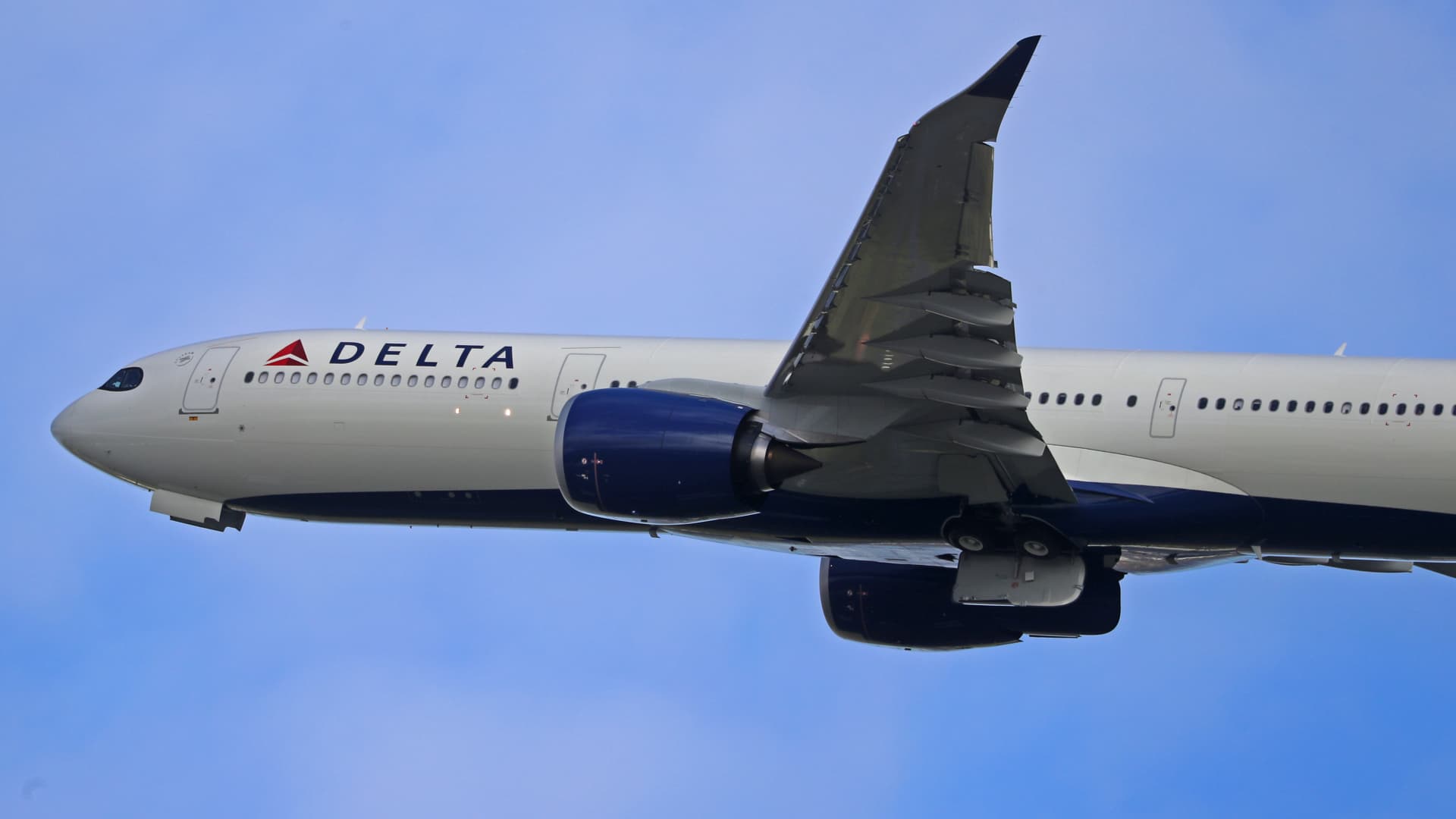An Airbus A330-941 is being delivered to Delta Air Lines, flying from Toulouse Blagnac Airport to Atlanta, in Toulouse, France, on December 8, 2023.Â
JoanValls | Nurphoto | Getty Images
Delta Air Lines swung to a profit in the first quarter and its CEO Ed Bastian said bookings for both leisure and business travel are strong.
The carrier made $37 million, or 6 cents per share, in the first three months of the year, up from a loss of $363 million, or 57 cents per share, in the year-earlier period, it said Wednesday. Delta’s adjusted earnings of $288 million, or 45 cents a share, rose from $163 million, or 25 cents a share in the first quarter of 2023.
Revenue of $12.56 billion, adjusted to strip out refinery sales, was up 6% from last year, and slightly below analysts’ expectations.
“Consumers continue to prioritize travel as a discretionary investment in themselves,” Bastian said in an interview.
Here’s how the company performed in the three months ended March 31, compared to Wall Street expectations based on consensus estimates from LSEG:
- Adjusted earnings per share:Â 45 cents vs. 36 cents expected.
- Adjusted revenue:Â $12.56 billion vs. $12.59 billion expected.
Corporate travel improved in the last quarter and solid demand is likely to continue, executives said.
Delta forecast second-quarter earnings of $2.20 to $2.50 per share, while analysts forecast between $2.23 per share on average, according to LSEG. Delta also reiterated its full-year forecast for $6 to $7 a share and free cash flow of between $3 billion and $4 billion.
Delta has slowed hiring, like other carriers, after a massive hiring spree in the wake of the pandemic, and is focusing more on efficiency. Bastian told CNBC that the company’s headcount will likely be up low single digits this year compared with 2023.
“Growth is normalizing and we are in a period of optimization, with a focus on restoring our most profitable core hubs and delivering efficiency gains,” CFO Dan Janki said in an earnings release.







